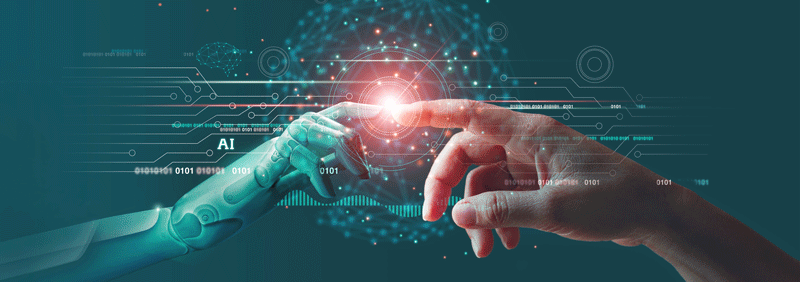 By Eric Cooperstein
By Eric Cooperstein
Confession: sometimes when I don’t know a legal term or concept, I Google it. I might just be looking for the proper phrasing of a type of lawsuit, some context for unfamiliar rules, or a brief explanation of some administrative process. I don’t necessarily need to read an entire treatise and be able to argue it in front of a judge, I just need a quick answer. It works. Don’t judge me. Most of you do the same but you don’t tell anyone (especially not the senior partner. Or the client).
It gets harder when lawyers need to draft a contract or a letter or a motion that they’ve never done before. Sample documents are harder to come by. You could just wing it, but it’s hard to tell whether you’ve got it right.
Meet your new virtual paralegal: ChatGPT. (“GPT” stands for Generative Pre-Trained Transformer.) I refer to this particular tool throughout this article for convenience and because it is the one I have used but there are now and will be other similar platforms. In under 30 seconds, ChatGPT can spit out a three-page document destruction policy for a small corporation. Perhaps you need to draft a withdrawal letter to a client who is behind in paying your invoices. Poof! Letter drafted. Need some ideas for a CLE on the legal ethics of ChatGPT? Click, click, BOOM!
Chat GPT is a new type of artificial intelligence (AI) tool that has been a media sensation since late 2022. AI can take many forms. When you start a Google search and, after typing just a word or two, you see an option for your entire query, some call that AI. Computer programmers have taken a vast store of prior search terms, created rules for predicting what words you might type next, and use that information to generate suggested search terms.
Similarly, when your cable service is out and you go to the provider’s website and click “chat with us,” you may have an automated conversation with a “Chat Bot” that is programmed to analyze the words you typed and generate responses. That is also a form of AI, albeit not a very impressive form.
A New Level of AI
ChatGPT takes this concept to a whole new level. Its developers have figured out how to gather up a mind-boggling large amount of information available online, then created sophisticated and clever rules (algorithms) for sorting and recombining that information, which then (based on more rules and algorithms) generates rather complex, narrative responses to user queries. The answers are sophisticated enough to fool a college professor, which has already led to soul searching at the post-secondary level.
Those of you who watch too many science fiction movies may be freaking out a little. Take some deep breaths. The synchronicity has not yet arrived. Although the corporate document destruction policy ChatGPT generated (drafted?) for me looks like it would have given me a great place to start, it had some clear deficits. There were no citations, and it is impossible to tell what resources, from what jurisdictions, Hal 2000 relied on to draft that document. I'm not an employment lawyer, so it is difficult for me to know whether it left out important criteria.
Of the ethics seminar ideas I asked ChatGPT for, one was clearly wrong (“Bias: Lawyers have an ethical responsibility to provide impartial and unbiased advice”), and the other three were in the correct categories but had weak explanations. On the other hand, the withdrawal letter was clearly written (in complete sentences, a pet peeve of mine), had a firm but kind tone, and was devoid of hostile emotions. It omitted, however,
critical elements such as whether there were upcoming deadlines in the client’s case and how the client could get a copy of the lawyer’s file.
Ethical Risks
A few ethical issues present themselves. The first that comes to mind, competency, is somewhat paradoxical. On the one hand, like those secret Google searches we all do for legal concepts, if you generate and rely on a document without checking whether the information is correct, that’s going to be on you. On the other hand, if you (continue to) stick your head in the sand and try to ignore ChatGPT, you may lack the competency to determine whether an opposing party or counsel is using it or you may lose clients to other lawyers who use ChatGPT to enhance their services.
The inability to determine from where ChatGPT has drawn its information raises some troubling issues around copyright violations and plagiarism. It is not immediately apparent whether the AI created a unique work (which could mean the developers have some property interest in the creation) or stitched together large chunks of others’ writings. This has been part of the controversy around ChatGPT. Lawyers may need to think twice about whether a copyright violation or plagiarism could violate Rule 8.4(c) (dishonesty, fraud, deceit, or misrepresentation). It’s a confusing topic because lawyers have been “borrowing” each others’ documents, pleadings, briefs, etc. since forever.
Implications for Lawyers
This new level of AI also has troubling implications for the practice of law. First off, we lawyers do a terrible job of defining what constitutes the practice of law, which makes it difficult to identify the unauthorized practice of law. ChatGPT may be a boon to non-lawyers, raising the question yet again of how lawyers communicate their value to clients. Generating forms will be further diminished as a lawyer business model; applying the law to a set of facts and providing judgment about likely outcomes and future strategy will continue to be the focus.
For now, Chat GPT and its progeny is probably more of a new tool for lawyers to master and leverage and less of an existential threat. AI is at about the level of a very clever 7th grader, but one cannot deny that it is likely to get smarter every day. You should go online and give it a try:
www.chat.openai.com.
And now this article will become part of the Great Accumulation of Knowledge that ChatGPT may use to answer questions and draft documents. Or not. There’s no way to know at this point.
 By Eric Cooperstein
By Eric Cooperstein
etc@ethicsmaven.com
Eric Cooperstein. the “Ethics Maven,” defends lawyers and judges against ethics complaints, provides lawyers with advice and expert opinions, and represents lawyers in fee disputes and law firm break-ups.